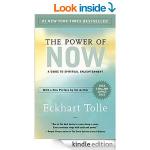I’m sick and tired of how people readily use the word crazy. I’ve heard crazy slung at people countless times but rarely, is it used accurately. It seems to me that crazy and psychotic are far from interchangeable. Crazy infers not normal. Whereas, psychotic is an actual term used for certain organic imbalances by professionals and even then, psychologists shy away from the term.
Being a passionate, idiosyncratic person, I’ve been called crazy countless times. Annoyingly, it’s usually because someone’s deflecting my fervent confrontation rather than addressing the issue; “crazy” undermines my argument and my voice; therefore, the person I’m addressing doesn’t have to take any accountability.
I used to take this personally and had some deep seeded need to prove that I was not crazy. Fortunately, I must have reached some sort of emotional healthiness because the pieces began to fall into place. One day, I asked myself, “Why do I care if people call me crazy? Plus, what kind of person calls people names? Can anyone say, Projection?” What’s clear was that throwing such a term around was emotionally unhealthy and I no longer wished to participate in others issues, especially since I’ve worked so hard on my own. Truth be told, I preferred my crazy over impotent finger pointing any day.
Once I owned this realization, I was annoyed with myself for giving these unhealthy people power in the first place. I’ve heard that someone cannot hurt your feelings unless you give them permission, paraphrased from Eleanor Roosevelt’s famous quote, “No one can make you feel inferior without your consent.” So, I began to wonder why I was readily handing out permissions slips to every Tom, Dick and Harry. It’s like I had a huge sign that said, “Kick me” and it was me who put the sign on my back. Oh, brother!
The most interesting thing about behavior is awareness and how much can change when one addresses and acknowledges behavior. It’s like poof, dissolved. Let me give you an example of what I mean. In college, there was this girl who called me names because I wore lipstick; “make up girl” was her favorite. She also had a tendency of badgering my boyfriend in regards to how “crazy” I was because I confronted the issues in our relationship, meaning my boyfriend and myself.
Upon first hearing these comments, tears welled up in my eyes. A few minutes later, I realized something pivotal, “I’ve never liked this girl. She never says anything positive about anyone or anything. This isn’t about me. This is about her.” Instantly, the tears dried up. The next time that she spoke to me, I simply smiled and said matter-of-factly, “I’m not interested in your negativity.” And, like that, the spell of hurt feelings was broken, well, with her, that is.
It has taken years for me to apply this concept of giving away my power in all areas of my life. To this day, I still have to remind myself of this; it’s not necessarily automatic. I do wish it happened on the front end, but no matter, the important thing is that I acknowledge that it’s my power.
I now laugh when people call me crazy, which really throws people off. Laughter is a wonderful way of deflecting others’ negativity. And, truly, I’m not laughing with the person who’s calling me names; I’m laughing at them. Granted, there’s still a touch of negativity in this, but I can live with that. I’ve put it on my rather lengthy list of things I need to work on.
Now that I’ve addressed the rampant misuse of the word crazy, let’s get back to the issues surrounding OCD. I’m the first to admit that OCD does not blend in many social circles, but is it psychotic or within the realm of such a diagnosis? I’m simply unqualified to answer that so I sought a professional diagnosis to clear up any misconceptions. Apparently, I have a mild form of OCD and behavioral modification could readily help. More importantly, I do not have psychotic tendencies, whatsoever. Yeah! This gave me a baseline to work from and that’s exactly what I did, I’ve learned to diffuse the momentum of my anxiety disorder when necessary, but also to use the momentum of my OCD to my advantage in the right circumstances.
The first time that I realized OCD could be a valuable asset was at U.C. Berkeley. My distractibility was almost zero thanks to my OCD. I could study for days on end, weeks at a time without losing focus. When people called me tenacious, I’d simply smile because really it was my OCD, but I placed the compliment in my back pocket for a rainy day. Over the years, I’ve honed this focus with work and personal projects, creating much success in my career and personal life.
The question that remains concerns the shortfalls of my disorder, the intrusive thoughts, which is part and parcel to the OCD gig. For me, I’ll be sitting lost in my thoughts and suddenly, I’ll think of something negative like I have a disease or a family member is hurt. In fact, I’m convinced of it. I’ll try to shake it off, but like a horse with blinders on, I cannot see past the negative thought. The worst part is that these thoughts hit me out of nowhere and it feels like a private hell, separating me from the rest of the world.
I can be a lot of fun, but when my anxiety hits, it’s like a whirling dervish on roller skates without a compass. With that said, it’s easy to see why balance is essential. This is why I sought professional guidance to help restore balance during emotional upheavals. It turns out that my past fed into my present fears so dealing with these deeper layers of my past, minimized my fits. O.k. that’s a little obvious, but sometimes, I need people to point out the obvious because I have a tendency to choose the most difficult, non-direct path in life and I think that’s me, not the OCD.
I’ve had people say that this disorder sounds like a curse, but that’s not really how I look at disabilities or dysfunctions. I figure that there’s a learning experience here and it’s my job to figure out the lesson. I’ve asked myself many times if I would’ve worked so hard to become emotionally, mentally, and physically healthy if it weren’t for my OCD. The answer is always the same; it’s very unlikely that I would’ve taken the initiative to evolve and work on my past issues if it weren’t for the uncontrollable force of my disorder.
Here’s the incredible thing, psycho-therapy and my own hard work has transformed my disorder into a rather haphazard form of healthiness. I’m not perfect. I’ll never rid myself of OCD. I still have fits, but they no longer carry the momentum or the disruptiveness in my life that they once did. And, I’m o.k. with that. In fact, I’m incredibly proud of myself. This is why I’m here, writing all this down for complete strangers because I hope in sharing my experiences that others are able to accept themselves. It’s unnecessary to look at anxiety disorders as a set back or a flaw. Rather, how much healthier is it to look at anxiety as a platform to better ourselves, to turn our crazy into an incredible chain reaction of healthy! Food for thought:)


